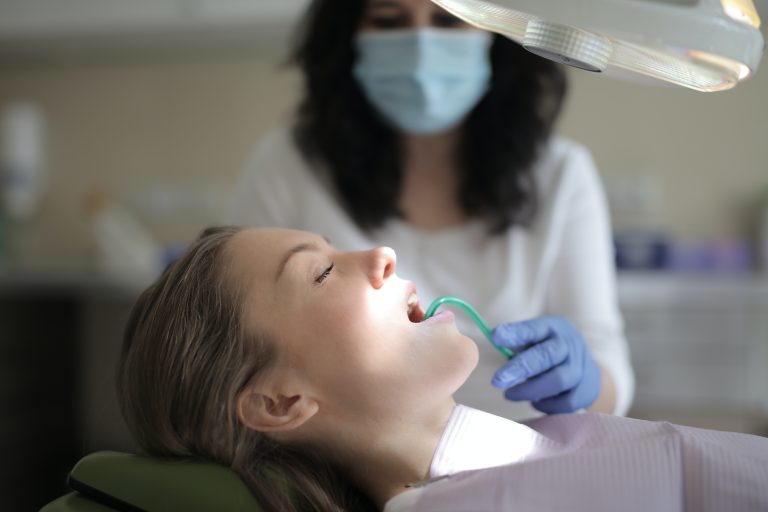Every year 5 Million Americans spend around $3 billion in dental costs on wisdom teeth removal. While many people worry about wisdom tooth surgery after-care, leaving those pesky molars untreated is not an option. Untreated wisdom teeth can cause gum infection, tooth decay, sometimes even tumors – the hassle is just not worth it (not to mention the PAIN).
However, wisdom tooth recovery can be smooth-sailing if you take post-care seriously. Most people can be up and running in less than a week. This article discusses everything you need to know about wisdom tooth removal post-care to help heal faster and avoid potential infections.
What To Expect Immediately After Removal
First, it is essential to know what to expect immediately after wisdom tooth surgery, so you go to the dentist’s office prepared accordingly.
The first thing you need to ask your dentist is the kind of sedation you will undergo. Since wisdom tooth removal surgery is a single-day procedure, you will often be administered local anesthesia. In that case, you will remain in the dental chair. However, sedation kind varies from case to case, so there’s a chance you may be administered general anesthesia.
With general anesthesia, you will take time to gain consciousness. Thus, you will be shifted to the recovery room.
Once you are awake and alert, the dentist will assist the situation and allow you to go home. Regardless of the kind of sedation administered, it is highly recommended (and in some cases mandatory) that you bring someone with you to drive you home. Patients given general anesthesia are not allowed to drive for a more extended period. You may also feel nauseous from the anesthesia.
Moreover, some bleeding, swelling, and pain are entirely normal immediately post-surgery. So, do not be alarmed and follow the steps below for a quick recovery. However, read on to know when you should seek medical help should any symptoms escalate.
Wisdom Tooth Surgery: Approximate Recovery Time
Since wisdom tooth removal is relatively common, the recovery is pretty quick – up to two weeks in most cases. However, each patient is different, and recovery could be longer for impacted wisdom teeth (those that do not have enough room to grow so they cannot emerge from the gums).
Keep in mind that the actual wound can take several weeks to heal completely, so disregarding post-care practices can still cause an infection weeks later.
6 Steps To Facilitate Quick Recovery After Wisdom Tooth Removal
Wisdom tooth after-care is not too complicated. Keeping a few things in check, like the kind of foods to eat and oral cleanliness, can make post-surgery recovery a simple process. To make your wisdom tooth recovery as swift and painless as possible, follow the six steps below.
1. Blood Clot Maintenance
Soon after surgery, the blood clot that forms on the wound is vital for quick healing and pain management. If the blood clot is dislodged for whatever reason, it will cause extreme pain and make you susceptible to infections by exposing the underlying bone and tissue. Therefore, you must maintain it.
Your dentist typically asks you to bite down on a pad made out of gauze to minimize the bleeding from the wound and facilitate clot formation. However, ensure that you are not biting down too hard as to dislodge the clot. Other seemingly harmless activities that can dislodge the clot include exercise, drinking from a straw, smoking, gargling, and (but not limited to) spitting. Therefore, ensure no pressure or strain on the stitches or clot on the extraction site.
2. Ice and Massage Your Jaw
For the first few days, pain around the jaw is quite common. Icing the jaw and connecting area with an ice pack can help with pain relief and ease the swelling.
Get an ice pack and place it on the extraction site for 15 minutes at a time. Take a break for 20 minutes and then ice the jaw and connected cheek area again. This is an easy way to elevate discomfort. Icing during the first two to three days after the procedure is beneficial. However, DO NOT use a hot press at all.
Moreover, since the surgery requires your jaw to remain open at an awkward angle for an extended time, gently massaging the area after 24 hours can help with stiffness. However, the soreness should diminish slowly in about a week or ten days.
3. Know What To Eat
It is given that after wisdom tooth removal, you will have to take care of what you eat for a while. While hydration and nutrition are critical for recovery, the first few days only have soft foods that do not disrupt your clot.
Good food choices include soup, broth, smoothies, apple sauce, mashed potatoes, pudding, mashed avocados, and coconut water.
4. Avoid Certain Foods
Obviously, when you are sticking to a strictly soft diet, there will be certain foods that you will not be able to have for the first few days. For example, nuts and seeds are a complete no-no for the threat of dislodging the clot or stitches. You should also steer clear of alcohol, fizzy drinks, or very spicy foods. Moreover, how you eat is also essential. Do not gulp food and sip through a straw very vigorously. Very hot can also cause the extraction site to burn and irritate.
When you feel ready, move on to a heartier diet but give you time to adjust slowly to varying kinds of foods.
5. Take Prescribed Pain Medications
Depending on the case, your dentist may prescribe your more potent pain killers. Additionally, you may also be given antibiotics to fight potential infections. Make sure to follow your dentist’s instructions and complete the medication course as prescribed. If not, you may experience an infection in the extraction site that can lead to complications.
6. Take Care of Oral Hygiene
Ask your dentist when you are allowed to brush your teeth. When brushing, make sure to stay very gentle (especially near the wound) while cleaning the mouth as thoroughly as possible. Moreover, use salt water rather than rising commercial rinses and gently swish it around your mouth before tipping your head for the liquid to fall out. DO NOT gargle and spit aggressively.
When To Seek Medical Help
While some discomfort and bleeding are common, unbearable pain despite medication, excessive bleeding, worsening swelling, and fever indicate potential infection or nerve damage. In such a case, immediately seek medical help.

